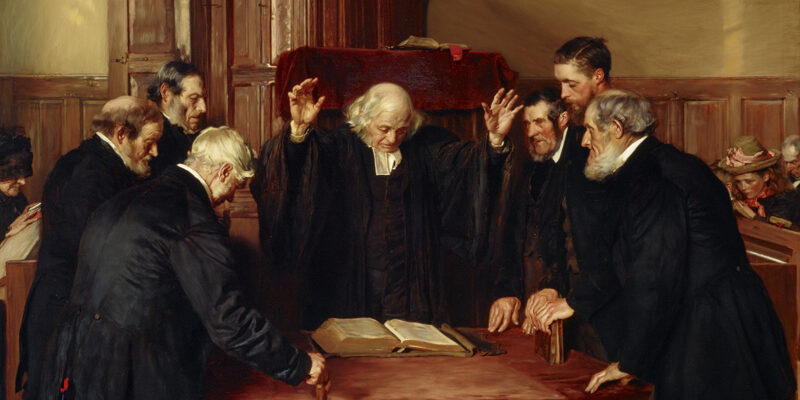
Slow Down and Ordain Elders Carefully
As a former church planter I was desperate to establish my congregation. In the technical speak of the Book of Church Order, I wanted to see the mission work I pastored become particularized as a congregation. The difference between a mission work and particular congregation is that the latter has a permanent duly elected pastor, not evangelist, and a duly elected session (or consistory), a group of ruling elders, at least according to the church order of my denomination. Our Book of Church Order recommends that you have at least two ruling elders and a pastor, which together constitutes a session and enables a mission work to become a particular congregation. Don’t be too quick to ordain elders. Click To TweetI wanted to move my mission work as smartly as I could to becoming a particular congregation. But our regional home missionary, the person responsible for overseeing, directing, and starting mission works in the presbytery (who was also a retired plumber) had some very wise advice. The plumber told me: “Don’t be too quick to ordain elders. In the rush to become particularized you might ordain unqualified men. You might end up laying hands on your worst problem!”
As I thought about the plumber’s counsel, and even reflected upon it over the years, I have realized how wise his advice was. Time and time again I have seen it happen—a new family comes into the church and they seem to exude and shine with the glimmer and glitz of wisdom, patience, and holiness. The children seem to be well-behaved, the wife seems to respect her husband, and the husband seems to have his act together. I remember talking on the phone with a prospective family that seemed to have all of their ducks in a row. My mind began to run riot and I thought this could be one of our next elders! But then the plumber’s advice came to mind and I resolved myself to be hopeful but patient—to wait and see what would happen. Blessedly, our Book of Church Order recommends that an elder candidate be a member of the church for one year before he is considered eligible for office. This year-long waiting period gives the pastor, session, and congregation a chance to evaluate and see the life, conduct, and theology of the prospective elder-candidate in action.Take the time to determine whether he truly meets the qualifications of 1 Timothy 3:1-7. Click To Tweet
Well, let me tell you what a difference a year can make! I soon became aware of another piece of advice from another senior member of our congregation: “Not all that glitters is gold.” In other words, as I was able to learn more about this man and his family, I discovered that all wasn’t what it should be for him to be an elder candidate. In fact, this particular family ended up creating a faction within the church that took a number of years to fix. Needless to say, if we had ordained him, it would have been a disaster for the church and a huge headache for me as the pastor.
Don’t be too quick to lay hands on a man. Take the time to determine whether he truly meets the qualifications of 1 Timothy 3:1-7. You don’t want to ordain your worst problem. Listen to the plumber!
This post was originally published on Dr. Fesko’s blog.

